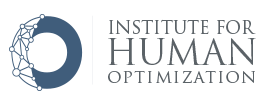Our environment can drive disease or mitigate disease risk. As we look at medicine through the lens of a systems biology approach, most disease is a result of a complex interchange between genetic and environmental factors.
. . .
The exposome is the sum of all the exposures of an individual in a lifetime and how those exposures relate to health. This term originated by Dr. Wild in 2005 introduced the concept to create awareness of the need to look at environmental impacts in epidemiological studies.
The exposome makes up of all exposures from conception to death.
There are three areas of the exposome
- Internal Factors
- Specific External actors
- General External Factors
There are studies that show that even from conception, there is a link between exposures throughout pregnancy and fetal growth. When we look at the skin exposome, there are various internal and external factors that show a clinical presentation of skin aging.
There are various types of environmental exposures that influence our health and aging including but not limited to:
- Air quality
- Tobacco
- Sun Radiation
- Pollution
- Stress
- Nutrition
- Sleep Quality
- Temperature
- Heavy Metals
- Mold
- Pesticides
Exposures are from our external environment as listed above but also are a result of our internal biological processes. Internal exposures rely on the omics of medicine. You can learn more about the omics of medicine with our blog series linked here. Utilizing omics data we can measure internal exposures and explore how the exposome is linked with disease.
Exposome and Cellular Ageing
If you recall, in our Hallmarks of Aging series, we discuss cellular senescence and its role in aging. Studies have shown that environmental exposures influence telomere length which is an indicator of cellular aging. Telomeres are the caps at the ends of the strands of DNA called chromosomes, which house our genomes. Telomere shortening is one of the most recognized biomarkers of aging. As cells divide, oxidative stress is considered one of the main factors contributing to telomere shortening. By the exposome influencing the shortening of telomeres, which in turn accelerates the process of aging by affecting our biological pathways that result in health decline.
Application of Exposome in Medicine
Exposome research is currently being developed to better understand an individual’s health, recommending therapies, and how they will respond to such therapy. This concept targets your individual conditions that influence your health. These exposures integrate your social science, environmental, occupational on a cumulative individual level. From a medical perspective, when we look at the microbiome, which plays a critical role on the exposome, that is unique to each individual due to the variability in bacterial diversity for various environments.
As you can imagine, there are complex challenges in accurately measuring the exposome of an individual. Additionally, your exposome can change throughout your lifetime which makes its analysis a life-long assessment in theory. These concepts have led to an approach that integrates the exposome and the genome known as the exposome-genome paradigm. By analyzing an individual’s exposome and genome, now leads to better insight for disease prevention.
The biological impact of the exposome is improving our understanding of the connection between exposures and health to help mitigate adverse health outcomes across the lifespan. Genetics only accounts for about 10% of disease leaving the rest to be related to environmental causes. Exposome information is a key step in precision medicine and precision environmental health monitoring.
More about The Institute for Human Optimization
The Institute for Human Optimization we believe that Omics-based medicine and systems biology taking into account your exposome will realize a new approach to practicing medicine – personalize, predicative, and precise medicine. We are committed to helping you create a personalized plan for living your longest, healthiest life possible. My team and I leverage the most cutting-edge advances in genetic testing, nutritional analysis, and functional medicine to get to the root biological imbalances that cause aging.
The Institute for Human Optimization was created with the intention of pursuing a highly personalized approach to longevity medicine to help enhance healthspan. Where lifespan is the actual number of years we’re alive, healthspan is how many of those years are spent in health and wellness.
We believe that a long healthspan – not just a long lifespan – is the most important thing you can cultivate. A long healthspan means you don’t miss out on life as you get older. It means remaining independent and having the vitality to travel and see the world. A long healthspan means that you can be there – in full body and mind – for the people who need you the most and that every day will feel like a gift.
We know that each person is truly unique. From DNA to iris, we all possess a blueprint that is genetically inherited and environmentally influenced. By gaining a deeper appreciation for the person on a molecular level and addressing the root causes driving disease, we can help promote optimized health through our unique scientific, N of 1, approach to individualized care.
The Institute for Human Optimization provides the most comprehensive, data-driven, personalized approach to wellness. It is:
· Predictive – We use genomics and advanced biomarker testing to risk stratification and empowerment.
· Personalized – We use data-driven health information to curate actionable change for disease mitigation and prevention.
· Preventive – We utilize highly individualized programs tailored to your unique genomic blueprint.
· Participatory – We empower engagement in personal choices, which allows for improved outcomes and enhanced results.
I am so excited about the possibility to support you on this cutting-edge journey to extend your lifespan AND your healthspan. Click here to schedule Your Longevity Equation Epigenetic Consult! Can’t wait to meet you!

